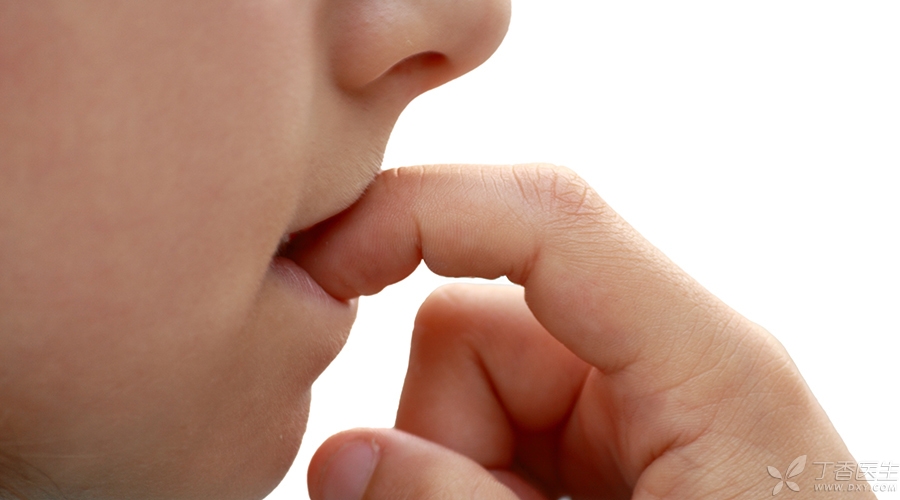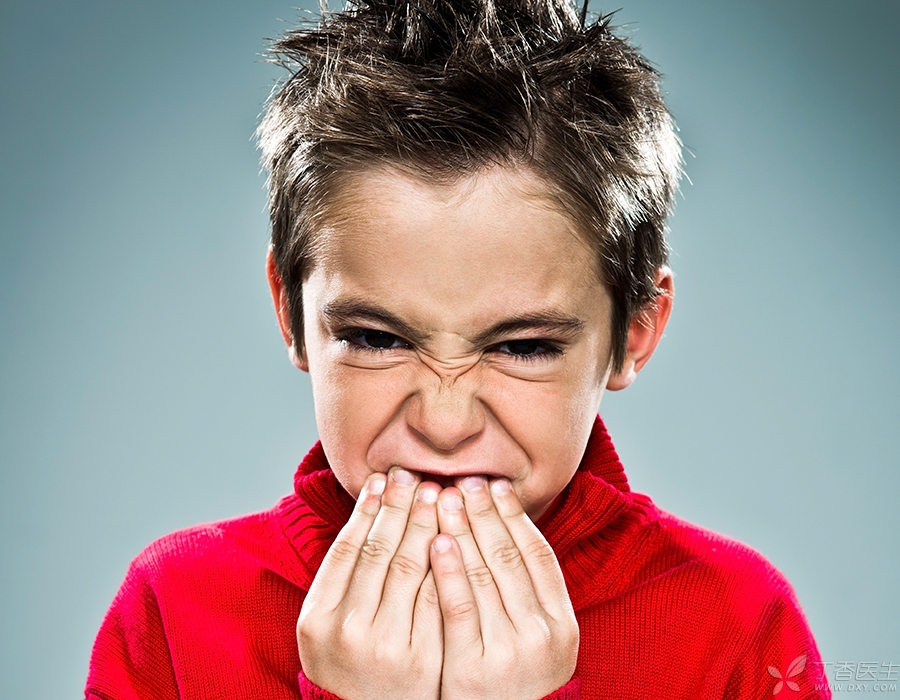
It is estimated that many adults have the memory of gnawing nails in their childhood-the appearance of drooling and gnawing nails, which makes them feel very pictorial!
Children’s nail-biting behavior is extremely common, mostly starting at an early age and gradually decreasing with age. However, some nail-biting adulthood may continue.
Many parents are distressed by their children’s behavior. The effect of bitter agent painting nails and wearing finger cuffs does not seem to last long. Punishment and intimidation will not only fail to improve nail gnawing behavior, but will backfire.
So, is severe nail biting a disease and should it be treated?
Nail gnawing is a disease and must be treated.
Perhaps some parents will think that many children have the bad habit of biting their fingers and nails when they are young and do not think it is a disease.
However, some children (even adults) have their fingers scarred by gnawing their nails. At this time, nail biting is not that simple.
In the fifth edition of the Diagnostic and Statistical Manual of Mental Illness (DSM 5), nail biting is classified as [obsessive-compulsive and related disorders]; In the 10th edition of the International Classification of Diseases (ICD-10), nail biting is also defined as [special behavioral and emotional abnormalities that begin in childhood and adolescence], such as sucking fingers and picking nose.
How do you know if your child has nail biting?
Nail gnawing behavior of healthy children is mostly temporary, while the frequency, intensity and duration of pathological nail gnawing behavior are higher than those of healthy children.
Nail biting is considered to be a kind of self-destructive behavior like pathological trichotomy and rigid dyskinesia, and some people also regard it as a kind of obsessive-compulsive disorder.

Why do babies prefer to chew their nails?
Some people like to chew their nails, some like to pick their noses, and others like to pluck their hairs. There is no way out, but some people like this.
At present, people do not have a clear understanding of nail biting behavior, and the exact cause is also controversial.
The reasons may include psychological factors, acquired environment and family factors. Some children may be related to imitating other people’s nail gnawing behavior, and some children’s nail gnawing may be inherited by their parents.
1. Born to chew
You may ask: Ah? Nail gnawing can also be inherited? !
Indeed, some studies have found that the offspring of parents who have nail-biting addiction are also more likely to have nail-biting behavior, even before the child is born, parents do not bite nails.
2. Emotional runaway easy to chew
Nail gnawing occasionally occurs in children with stable psychological state, but nail gnawing is usually a sign of emotional runaway.
Children who nibble nails may suffer from nervousness, stress, anxiety and depression.
In fact, nail biting may be a way to relieve anxiety and stress. When trying to stop nail biting, children will be more depressed.
3. Boring, hungry, low self-esteem… Love to chew anyway
Some studies also believe that nail biting is usually not the case when participating in social activities, and boredom and frustration are the causes of nail biting.
Nail biting is considered to be a compulsive and unconscious behavior. In adults, researchers suspect that smoking and chewing gum may be alternatives to nail biting.
There are also theories that nail biting is a continuation of finger sucking in infants.
In addition, hunger and low self-esteem are also possible reasons.
Beware of other mental illnesses
It is estimated that 20% ~ 33% of children aged 7 ~ 10 have nail biting addiction, which is more serious in adolescence.
In most cases, nail biting is considered to be just a habit problem that affects beauty.
However, patients with nail biting often have mental disorders.
More than two-thirds of nail-biting children have at least one mental disorder, and more than half of their parents have at least one mental illness, especially depression.
Among children and adolescents suffering from nail biting, children with attention deficit/hyperactivity disorder are extremely common (74%), and may also suffer from opposition defiant disorder (36%), separation anxiety disorder (20%), enuresis, tic disorder, obsessive-compulsive disorder, mental disorder or depression and other mental diseases.
In addition, lip biting, head bumping, skin scratching and hair plucking also appear in nail biting children.

Nail-biting addiction is very harmful, don’t despise it.
The main harm of nail biting is unsightly, but if it is serious, it will affect the quality of life of children.
STEP 1 Affect social intercourse
Nail gnawing is considered a bad habit in society and is vulnerable to discrimination and insult by other peers and even adults.
This will seriously hurt children’s self-esteem, affect social intercourse and hit children’s self-confidence.
Laughter and discrimination are not conducive to improving nail biting. On the contrary, they will aggravate anxiety, stress, helplessness and frustration, making nail biting more serious.
In addition, nail biting can also hinder other social behaviors, such as painting, writing and playing.
Think about it, our little friends are playing while you are gnawing your nails! How can we be friends happily?
2. Impact on health
In addition to affecting mental health, nail biting also affects physical health.
Nail biting is considered to be a mild self-destructive behavior. In serious cases, the tip of the nail will be separated from the nail bed, resulting in permanent shortening of the nail.
In addition, continuous nail gnawing, in addition to frequent bleeding around nails, is also prone to paronychia, secondary bacterial infection, herpes virus in the oral cavity can infect fingers through saliva, in serious cases, finger function may be affected.
Not only fingers, but also oral cavity and gastrointestinal tract may have problems.
Severe nail biting can cause tooth problems, including irregular tooth occlusion and crack of teeth; It may also damage teeth and alveolar structures, leading to temporomandibular joint abnormalities-24% of patients with nail biting have temporomandibular key pain and dysfunction.
At the same time, nail biting may also cause gingivitis or gingival abscess, as well as infection of parasites such as pinworms.
How can children stop biting their nails?
For most parents, children do not need to worry too much about nail biting. Mild nail biting does not need treatment and will generally be relieved automatically.
How do you know if your child is mild?
Nail biting is not frequent and does not cause the above-mentioned health or psychosocial problems, it can be considered as [mild nail biting].
At the same time, nail biting addiction with other mental diseases needs to be specially handled by psychiatrists. At this time, understanding the detailed disease process (including psychological aspects) and comprehensive examination are the key to treatment.
Punishment, intimidation? Be careful to backfire!
For nail-biting children, there is a lack of long-term effective behavior correction methods. However, teasing, punishment and intimidation are often not conducive to helping children correct this behavior. Aversion therapy (using bitter agent and chili oil to smear on nails) is also controversial at present, which may cause rebellious mentality and aggravate anxiety.
Behavioral changes do not take effect overnight. Parents and children should realize the long-term nature of correction, otherwise, it is easier to give up halfway.
The following methods may help improve children’s nail biting behavior:
-
Efforts should be made to eliminate the possible tension and anxiety of children.
-
Apply olive oil to your nails to soften them and make your children lose interest.
-
Trim the edges of nails;
-
Wear gloves;
-
Chewing gum instead of nails;
-
Encourage children to participate in social activities;
-
Divert your attention and let your child’s hands be too busy doing other things to bite his nails, such as playing musical instruments, participating in sports, painting or toys that need to be held.
Behavioral correction is not good, and drugs are used to treat it.
Behavior correction is ineffective, and there are still drug treatments to choose from!
[Selective serotonin reuptake inhibitor] This kind of drug is currently the most used drug to treat nail biting, and has certain effect on children and patients with severe nail biting.
If you choose specific drugs, it is recommended that you follow the advice of psychiatrists and do not buy your own drugs and try them yourself. After all, the use of psychotropic drugs is very professional, and other specialists have to study before they can master them.
At the same time of taking medicine, we must remember to return to the clinic in time. Regular follow-up observation is an important method to combat side effects.
